Telemedicine has emerged as a game-changer for healthcare providers, offering an efficient and convenient way to deliver medical care to patients remotely. With the COVID-19 pandemic highlighting the importance of telemedicine, there has been a surge in demand for digital healthcare services. Artificial Intelligence (AI) has played a crucial role in driving this shift, enabling healthcare providers to offer more personalized and efficient care to their patients.
AI tools are being increasingly integrated into telemedicine, revolutionizing the way healthcare services are delivered. These tools offer numerous benefits, including accurate diagnosis, improved patient outcomes, and reduced healthcare costs. In this blog, we will explore the top AI tools for telemedicine and how they are transforming the healthcare industry. We will also delve into their potential future impact, as well as the challenges that come with adopting this technology.
Amwell

Amwell is a telemedicine platform that uses AI to help physicians and patients connect remotely. It offers virtual consultations, on-demand urgent care, and remote monitoring services to help people get the care they need without having to leave their homes. The platform's AI capabilities allow it to assist with tasks like triage, diagnosis, and treatment recommendations. With its user-friendly interface, Amwell makes it easy for patients to schedule appointments, communicate with their doctors, and access their medical records from anywhere with an internet connection. By leveraging the power of AI, Amwell is able to provide a more efficient and effective healthcare experience for both patients and providers.
Pros
Cons
Overall Rank
Babylon Health
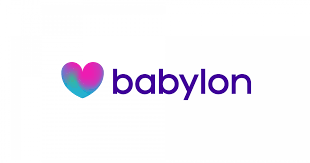
Babylon Health AI tool is an innovative platform that offers users quick and easy access to healthcare information and services. The tool provides patients with a personalized health assessment through an AI-powered chatbot that uses natural language processing to ask questions about their symptoms and medical history. Based on the responses, the chatbot provides a probable diagnosis and recommends next steps, including booking a virtual appointment with a healthcare provider, ordering medication, or suggesting self-care measures. Additionally, Babylon Health allows users to monitor their health and fitness progress, access medical records, and connect with healthcare professionals in real-time. The platform's user-friendly interface, convenience, and cost-effectiveness make it a game-changer in the healthcare industry.
Pros
Cons
Overall Rank
Bright.md
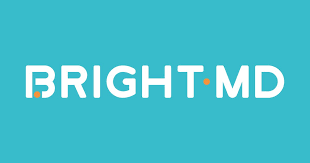
Bright.md is an AI-powered virtual care platform that offers efficient and accessible healthcare services to patients. With its advanced algorithms and machine learning technology, Bright.md automates the diagnosis and treatment of common health conditions through online consultations. Patients can access the platform from their mobile devices, answer questions about their symptoms, and receive a diagnosis within minutes. The platform is designed to help reduce the workload of healthcare providers and improve patient outcomes by delivering quality care at a lower cost. Bright.md is particularly helpful for patients who live in remote areas, have mobility issues, or prefer virtual care over in-person visits. Overall, Bright.md is a revolutionary tool that is transforming the way healthcare is delivered.
Pros
Cons
Overall Rank
Buoy Health
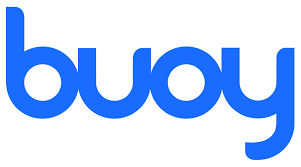
Buoy Health AI tool is an innovative healthcare platform that utilizes artificial intelligence to help individuals understand their symptoms and provide them with accurate and personalized recommendations for care. This tool utilizes natural language processing and machine learning algorithms to assess the user's symptoms and suggest potential causes, treatments, and healthcare providers. Buoy Health AI tool allows users to input their symptoms in a conversational manner, making it easy for anyone to use regardless of their technical knowledge. The platform also offers a comprehensive database of medical information, making it a useful resource for individuals seeking to learn more about their health.
Pros
Cons
Overall Rank
Cognitivescale
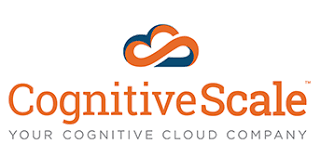
Cognitivescale is an artificial intelligence platform that offers a suite of tools to help businesses automate their processes, gain insights, and make better decisions. The platform uses machine learning algorithms and natural language processing to analyze large amounts of data and extract valuable insights. It can be customized to meet the needs of different industries, such as healthcare, finance, and retail. One of its most popular features is its ability to create chatbots that can interact with customers in a conversational manner, providing personalized recommendations and support. The platform also offers predictive analytics, anomaly detection, and decision management capabilities, which can help businesses reduce costs, increase efficiency, and improve customer satisfaction.
Pros
Cons
Overall Rank
Enlitic

Enlitic is a cutting-edge AI tool that is revolutionizing the medical industry by providing accurate and efficient diagnostic solutions. Using advanced deep learning algorithms, Enlitic can analyze medical images such as X-rays, CT scans, and MRIs to identify potential health issues with a high level of accuracy. The tool can also provide additional insights to healthcare professionals, assisting them in making more informed decisions about patient care. Enlitic's AI technology is constantly improving through the use of machine learning and training with vast amounts of data, making it one of the most effective tools in the healthcare industry today.
Pros
Cons
Overall Rank
HealthTap

HealthTap is a powerful AI tool that uses natural language processing and machine learning algorithms to provide personalized healthcare advice to patients. It allows patients to describe their symptoms or medical concerns in plain language and receive immediate recommendations for next steps, such as self-care or seeking medical attention. HealthTap's AI is trained on vast amounts of medical data and is continually updated with the latest research and best practices, making it a valuable resource for patients seeking reliable medical advice.
Pros
Cons
Overall Rank
Infermedica
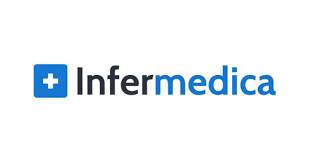
Infermedica is an AI tool that provides advanced diagnostic and triage solutions to healthcare providers, patients, and insurance companies. It leverages machine learning algorithms to analyze patient symptoms and medical history, helping physicians to make more accurate diagnoses and determine appropriate treatment plans. Infermedica also offers a user-friendly chatbot interface that enables patients to self-diagnose and triage their symptoms, providing them with reliable medical information and advice. With its AI-powered technology, Infermedica is revolutionizing the healthcare industry, improving patient outcomes, and reducing healthcare costs.
Pros
Cons
Overall Rank
K Health
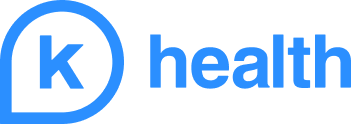
K Health is an AI-powered healthcare tool that uses advanced algorithms to diagnose and treat various medical conditions. The platform provides patients with access to a network of qualified physicians, medical professionals, and patient communities, making healthcare more accessible and affordable. The AI technology used by K Health leverages data from millions of health records to identify symptoms and patterns, which allows it to offer personalized recommendations and treatment plans. Additionally, users can chat with healthcare professionals through the app, receive real-time advice, and get prescriptions for medication. Overall, K Health provides an innovative and effective solution for individuals seeking accessible and affordable healthcare.
Pros
Cons
Overall Rank
MedWhat
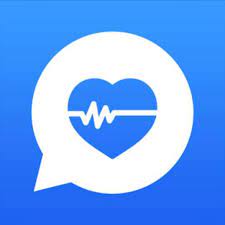
MedWhat is an AI-powered tool that enables users to ask medical questions and receive instant answers in natural language. The tool utilizes natural language processing technology to analyze the user's question and provide relevant information sourced from medical databases, research papers, and clinical trials. It can also recognize medical jargon and interpret complex medical concepts, making it a valuable tool for patients, healthcare providers, and researchers. MedWhat's accuracy and speed in providing medical information have made it a useful tool in improving medical diagnosis, reducing medical errors, and enhancing patient care.
Pros
Cons
Overall Rank
Notable Health
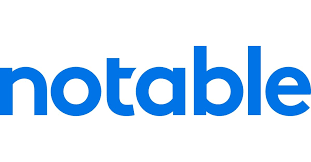
One notable health AI tool is the IBM Watson Health platform, which provides a range of services to healthcare providers and researchers, including clinical decision support, patient monitoring, and drug discovery. The platform uses natural language processing and machine learning algorithms to analyze large amounts of data from electronic health records, medical literature, and other sources, and provides personalized recommendations based on this analysis. IBM Watson Health has been used in various healthcare settings, including cancer care, cardiovascular disease management, and mental health treatment. It has also been integrated into electronic medical record systems, allowing clinicians to access its recommendations directly from the patient's chart.
Pros
Cons
Overall Rank
Nuance
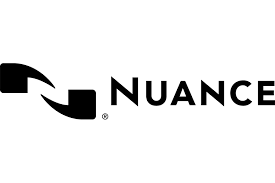
Nuance AI tool is an advanced platform that utilizes artificial intelligence and machine learning to help businesses automate and streamline their operations. With its powerful speech recognition capabilities, Nuance AI can transcribe audio recordings into text in multiple languages and provide real-time insights. It can also analyze customer interactions and identify trends and patterns to improve customer service and increase customer satisfaction. Additionally, the tool can automate repetitive tasks, such as data entry, saving businesses time and money. Nuance AI is a game-changer for businesses looking to increase efficiency and improve their customer experience.
Pros
Cons
Overall Rank
Sensely
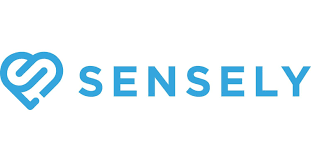
Sensely is an AI-powered virtual assistant tool that offers personalized and interactive healthcare solutions to patients. The platform utilizes natural language processing (NLP) and machine learning algorithms to understand and respond to patients' inquiries and provide them with appropriate medical advice. Sensely can also help patients schedule appointments, refill prescriptions, and monitor their medication adherence. The tool has been designed to improve patient engagement and reduce healthcare costs by providing timely interventions and preventive care. Sensely can be integrated with existing electronic health record (EHR) systems and can be used across a wide range of devices, including smartphones, tablets, and smart speakers. The tool is easy to use and offers patients a seamless healthcare experience.
Pros
Cons
Overall Rank
Teladoc
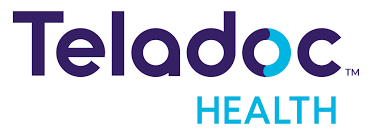
Teladoc AI is an innovative tool that leverages artificial intelligence to provide online medical consultations and remote healthcare services. It employs a machine learning algorithm that analyzes a patient's medical history, symptoms, and other vital information to generate a diagnosis and treatment plan. With Teladoc AI, patients can receive medical advice and treatment from the comfort of their homes, without having to visit a doctor's office or hospital. The tool is particularly useful for people living in remote areas or those who are unable to leave their homes due to physical disabilities or mobility issues. Additionally, Teladoc AI can help reduce healthcare costs and improve patient outcomes by providing timely and accurate diagnoses.
Pros
Cons
Overall Rank
Viz.ai

Viz.ai is an artificial intelligence-powered tool that assists doctors in detecting and treating strokes quickly and accurately. The platform uses deep learning algorithms to analyze brain scans and identify signs of stroke, such as blood clots and bleeding, within seconds. Viz.ai then alerts the on-call stroke specialist, enabling them to remotely review the scan and make a diagnosis in a timely manner. This can significantly reduce the time it takes to diagnose and treat a stroke, which is crucial in preventing long-term brain damage or even death.
Pros
Cons
Overall Rank
X2AI
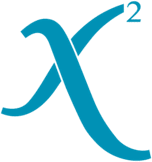
X2AI is an innovative AI tool that provides mental health support to people who are struggling with mental health issues. This AI tool utilizes a conversational interface to engage with people in a therapeutic manner, providing them with personalized support and resources to manage their symptoms. X2AI is designed to be accessible and user-friendly, making it easier for people to seek help for their mental health concerns. With its unique approach to mental health support, X2AI has the potential to reach and assist a large number of people who may not have access to traditional mental health services.
Pros
Cons
Overall Rank
Your.MD
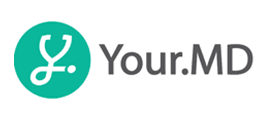
Your.MD is an AI-powered health tool that provides users with personalized health advice and symptom checker services. The tool employs a conversational approach, asking users questions about their symptoms and medical history before providing them with a range of potential diagnoses and recommendations. Your.MD also includes a database of health articles, created by medical professionals, that provide information on various health conditions and wellness topics. One of the benefits of Your.MD is that it is available in multiple languages, making it accessible to people from all over the world.
Pros
Cons
Overall Rank
Zebra Medical Vision
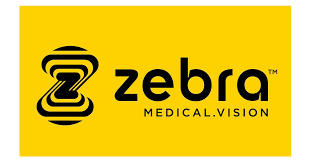
Zebra Medical Vision is an AI-based medical imaging analysis tool that aims to provide a faster and more accurate diagnosis of medical conditions. The software analyzes medical images such as CT scans and X-rays using machine learning algorithms, identifying patterns and anomalies that may indicate the presence of a disease. One of the benefits of Zebra Medical Vision is its ability to process large amounts of data quickly, reducing the time it takes for physicians to make a diagnosis and ultimately improving patient outcomes. The tool has been used to detect a wide range of medical conditions, including osteoporosis, breast cancer, and cardiovascular disease.
Pros
Cons
Overall Rank
In conclusion, the field of telemedicine has greatly benefited from the advancements in AI technology. The availability of various AI tools has allowed healthcare providers to offer more personalized and efficient care to their patients. These tools have helped to reduce the barriers to access healthcare services, particularly for those in rural or remote areas, by enabling remote consultations and diagnoses. Some of the best AI tools for telemedicine include chatbots, natural language processing (NLP) algorithms, image recognition software, and predictive analytics models. These tools have proved to be effective in streamlining the diagnosis and treatment processes, as well as improving patient outcomes. With AI-powered tools, healthcare providers can accurately analyze large volumes of medical data and identify patterns and trends that may not be immediately apparent to human analysts. Overall, AI has the potential to revolutionize the way healthcare is delivered in the future. It is expected that as technology continues to evolve, we will see even more sophisticated AI tools emerge that will enable healthcare providers to offer more precise and personalized care to their patients. As such, the adoption of AI in telemedicine will undoubtedly play a crucial role in improving the accessibility, efficiency, and quality of healthcare services.
